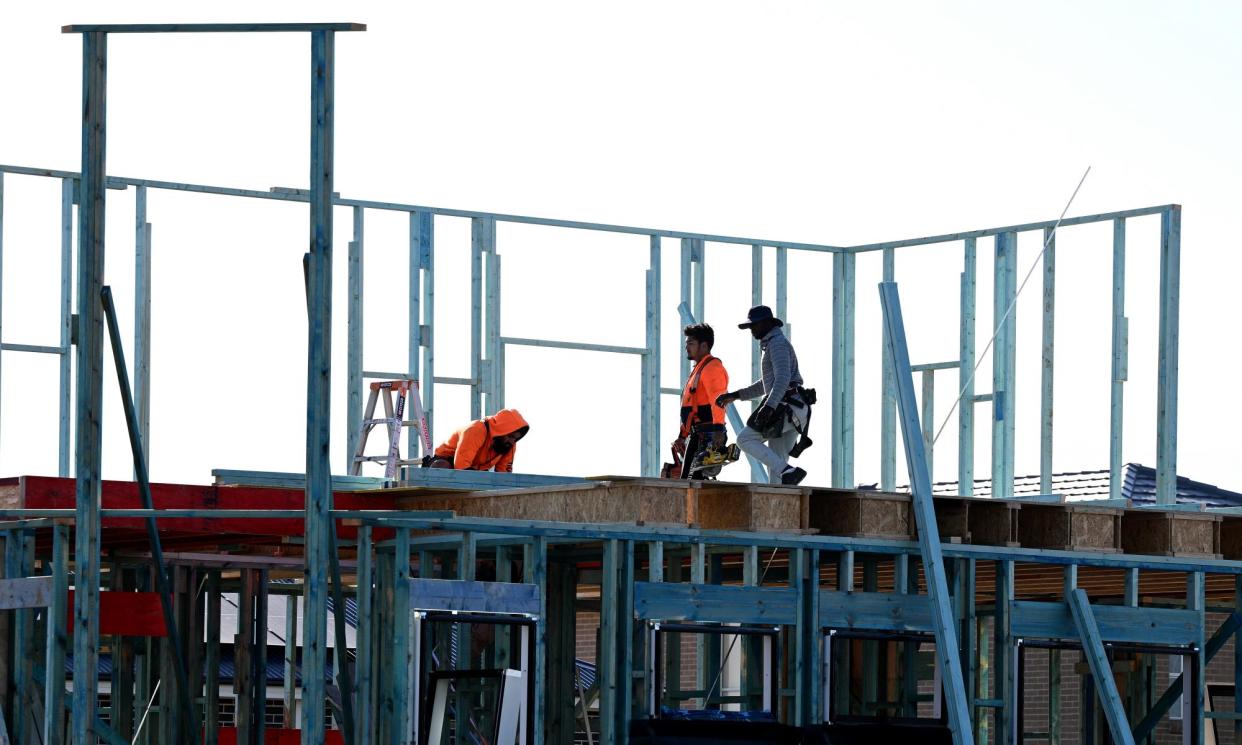‘Less money for health and education’: Albanese slams Coalition threat to cut GST unless states build housing

The Greens and the Coalition are opening up new fronts in the battle over housing policy, as the government continues to struggle to get its agenda through the Senate.
The shadow assistant spokesperson for home ownership, Andrew Bragg, opened the door for a future Coalition government to withhold funding to states and local governments unless house building was accelerated.
That included withholding GST payments, with Bragg saying “everything is under consideration”.
“We need to be creating and finding a way to hit the states hard where it hurts,” he told the ABC’s Insiders program.
“Otherwise, I fear that we would drift into a situation where the housing problem will get worse before it gets better.”
Speaking in Western Australia on Sunday, Anthony Albanese said Bragg’s suggestion showed the states would be at risk from cuts to the GST under a Coalition government.
“That means less funds for education and health and infrastructure,” the prime minister said.
“This is an example of how irresponsible the coalition government are and how they don’t represent a credible alternative.”
The Coalition has said it would scrap Labor’s housing future fund – which the government says would build 30,000 new homes – and so far has withheld support from the latest housing bills Labor is trying to get through the Senate. Those bills would establish a shared equity scheme and a build-to-rent incentive program for developers.
It is yet to announce a policy on how it would create more housing supply.
The Coalition’s exit from the housing policy negotiations has left the Greens in the driving seat. The Greens have refused to budge on their negotiation demands of having 100% affordable housing as part of the build-to-rent legislation, better rental protections and changes to capital gains and negative gearing.
With housing shaping up as one of the main issues of the next election, the Greens have also begun aggressively targeting private holiday rentals, such as Airbnb, which they say would return properties to the domestic rental market.
After the Victorian Greens pushed through changes to holiday rentals which would increase the tax paid on the properties and give local councils the opportunity to restrict or entirely ban the practice in their local government areas, the federal Greens are now looking to target the scheme.
Related: Report warns 1.6m Australian households struggling to insure their homes
The Greens’ housing spokesperson, Max Chandler-Mather, told Guardian Australia successive Labor and Liberal governments had turned houses into speculative assets for investors – rather than homes – through tax incentives, and the Greens would now push for a reversal.
“The system is rigged against renters and first-home buyers in favour of people buying their sixth, seventh or 25th investment property, including for use as short-term rentals,” he said.
“If we are serious about stopping the housing crisis getting worse by the day then we have to change the tax system, including the nuclear combination of negative gearing and capital gains tax discounts, as well as tax arrangements for properties left vacant or used for exorbitantly expensive short-term rentals in places like Byron shire, where homelessness is through the roof.”
Bragg said the Greens’ focus on short-term rental schemes like Airbnb was “tinkering” and further reform was needed in terms of supply.
But the Greens have argued the federal government could immediately start building programs to address supply.
Clare O’Neil has been handed the job of passing the government’s last major housing bills through the Senate as the new housing minister, but despite a change in language under O’Neil’s tenure, the government has not bent on any of the Greens’ negotiation demands.


